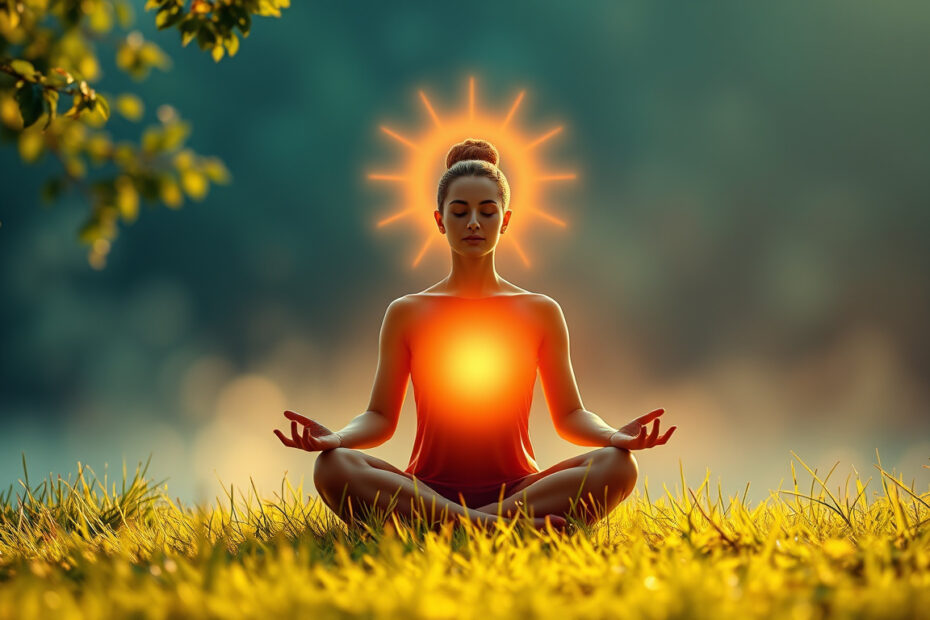🌟 Daily Awakening Quiz 🌟
In today’s fast-paced world, many people seek something beyond the material—the profound experience of spirituality. But what exactly is spirituality, and how can exploring it help us find deeper meaning and inner peace? This comprehensive guide delves into the essence of spirituality, offering insights and practical steps that anyone can embrace. Whether you identify with a particular religion or consider yourself spiritual but not religious, understanding spirituality can transform your outlook and enrich your life.
Understanding Spirituality: More Than Just a Concept
At its core, spirituality refers to the intrinsic human desire to seek connection with something greater than ourselves. It encompasses a broad range of experiences and beliefs, often focusing on meaning, purpose, and a sense of transcendence. Unlike rigid dogma, spirituality tends to be a personal journey, unique to each individual.
People often explore spirituality to:
- Find inner peace
- Understand their purpose in life
- Cultivate compassion and empathy
- Connect with a higher power or the universe
- Experience mindfulness and presence
According to the Pew Research Center, spirituality and religiousness remain important in people’s lives globally, often providing solace and guidance amid chaos (source).
The Benefits of Embracing Spirituality
Exploring your spirituality can lead to many positive outcomes for your mental, emotional, and even physical well-being:
- Improved mental health: Spiritual practices such as meditation and prayer have been shown to reduce stress, anxiety, and depression.
- Enhanced self-awareness: Spirituality encourages introspection and deeper understanding of oneself.
- Stronger relationships: A spiritual mindset fosters empathy and compassion toward others.
- Greater resilience: Faith or a sense of purpose can help individuals cope with challenges and uncertainty.
- Sense of belonging: Being part of a spiritual community can provide connection and support.
Pathways to Exploring Spirituality
Spirituality is not a one-size-fits-all experience. Various pathways can help you unlock deeper meaning and inner peace, depending on your interests and beliefs. Here are some common approaches:
1. Mindfulness and Meditation
Practicing mindfulness meditation helps ground you in the present moment. It develops awareness of thoughts and feelings without judgment, fostering inner calm and clarity.
2. Connecting with Nature
Spending time outdoors and appreciating the natural world can inspire awe and a sense of connection to something bigger than oneself.

3. Reading Spiritual Texts
Exploring sacred writings, philosophical works, or poetry related to spirituality can provide insights and inspiration.
4. Engaging in Prayer or Reflection
Whether through formal prayer or quiet reflection, communicating with a higher power or inner self can deepen spiritual experiences.
5. Participating in Community
Being part of spiritual groups or communities offers mutual support and shared expressions of faith and meaning.
Practical Steps to Unlock Inner Peace Through Spirituality
Embarking on a spiritual journey can feel overwhelming, but small, consistent steps can make it manageable and rewarding.
- Set an intention: Reflect on why you want to explore spirituality. Setting a clear intention can guide your practice.
- Create a daily ritual: Dedicate a few minutes each day for meditation, prayer, journaling, or mindful breathing.
- Limit distractions: Reduce time spent on devices or stressful activities to cultivate space for spiritual growth.
- Seek guidance: Consider books, podcasts, or teachers who inspire you.
- Be patient and open: Spiritual growth takes time. Embrace curiosity, and allow your path to unfold naturally.
Common Misconceptions About Spirituality
There are many myths around spirituality that may deter people from exploring it:
- Spirituality is the same as religion: While related, spirituality is broader and not confined to organized religion.
- You need to believe in a specific deity: Spirituality can be secular, focusing on connection and meaning without a particular god.
- Spirituality requires renouncing material life: Spiritual engagement can coexist with everyday responsibilities.
- It’s only for the enlightened or wise: Spirituality is accessible to everyone, regardless of background or knowledge.
FAQ: Exploring Spirituality for Meaning and Inner Peace
Q1: How can spirituality improve my daily life?
A1: Spirituality encourages mindfulness, compassion, and resilience, which help manage stress, build stronger relationships, and promote emotional balance.
Q2: What is the difference between being spiritual and being religious?
A2: Being religious typically involves adherence to organized doctrines and rituals, while being spiritual focuses on personal connection and meaning beyond institutional frameworks.
Q3: Can spirituality help with mental health challenges?
A3: Yes. Many find that spiritual practices like meditation and prayer reduce anxiety and depression, offering a supportive framework for coping.
Conclusion: Embrace Spirituality to Unlock Your Inner Peace
Exploring spirituality can profoundly impact your life, providing a rich source of meaning, calm, and connection in a chaotic world. By opening yourself to practices like meditation, nature immersion, and community engagement, you cultivate inner peace and deeper understanding. Whether beginning or deepening your spiritual journey, remember that spirituality is a personal experience that grows and evolves uniquely for you.
Are you ready to unlock the transformative power of spirituality today? Start small, stay curious, and allow your inner peace to flourish naturally. Your journey toward deeper meaning awaits.
